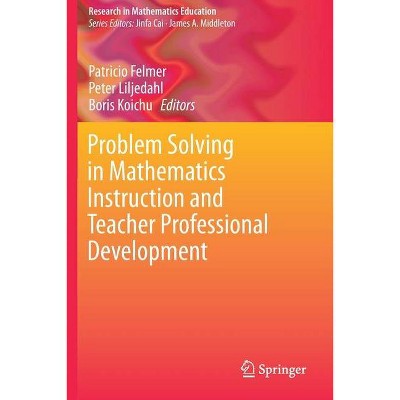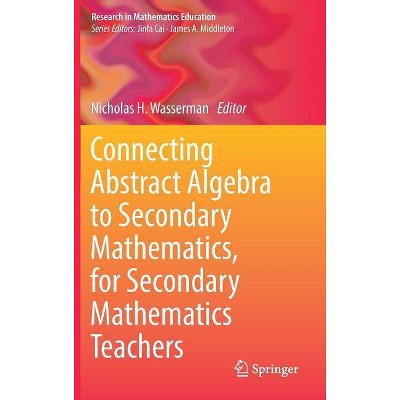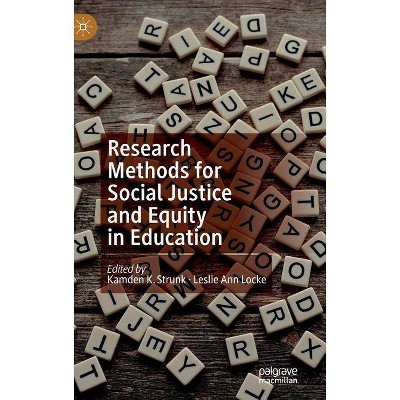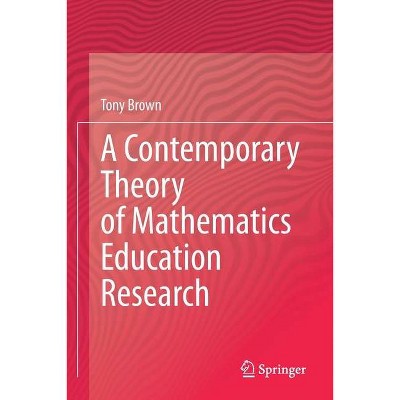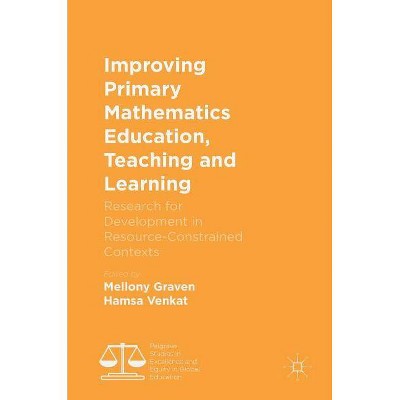Toward Equity and Social Justice in Mathematics Education - (Research in Mathematics Education) by Tonya Gau Bartell (Paperback)
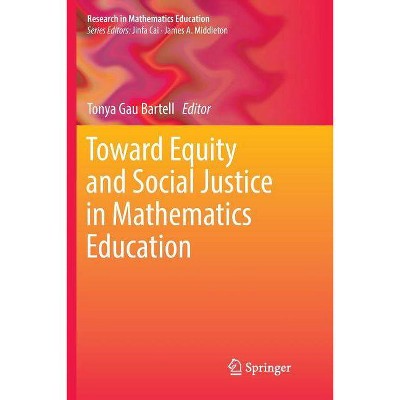
Similar Products
Products of same category from the store
AllProduct info
<p/><br></br><p><b> Book Synopsis </b></p></br></br><p>This critical volume responds to the enduring challenge in mathematics education of addressing the needs of marginalized students in school mathematics, and stems from the 2015 Annual Meeting of the North American Group of the Psychology of Mathematics Education (PME-NA). This timely analysis brings greater clarity and support to such challenges by narrowing in on four foci: theoretical and political perspectives toward equity and justice in mathematics education, identifying and connecting to family and community funds of knowledge, student learning and engagement in preK-12 mathematics classrooms, and supporting teachers in addressing the needs of marginalized learners. Each of these areas examines how race, class, culture, power, justice and mathematics teaching and learning intersect in mathematics education to sustain or disrupt inequities, and include contributions from scholars writing about mathematics education in diverse contexts. </p> <p>Included in the coverage: </p> <p></p><ul><li>Disrupting policies and reforms to address the needs of marginalized learners<br></li><li>A socio-spatial framework for urban mathematics education<br></li><li>Linking literature on allywork to the work of mathematics teacher educators<br></li><li>Transnational families' mathematical funds of knowledge<br></li><li>Multilingual and technological contexts for supporting learners' mathematical discourse<br></li><li>Preservice teachers' strategies for teaching mathematics with English learners<br></li></ul><p></p> <p></p> <p></p> <p></p> <p></p> <p></p> <p><i>Toward Equity and Social Justice in Mathematics Education</i> is of significant interest to mathematics teacher educators and mathematics education researchers currently addressing the needs of marginalized students in school mathematics. It is also relevant to teachers of related disciplines, administrators, and instructional designers interested in pushing our thinking and work toward equity and justice in mathematics education.</p><p/><br></br><p><b> From the Back Cover </b></p></br></br><br><p>This critical volume responds to the enduring challenge in mathematics education of addressing the needs of marginalized students in school mathematics, and stems from the 2015 Annual Meeting of the North American Group of the Psychology of Mathematics Education (PME-NA). This timely analysis brings greater clarity and support to such challenges by narrowing in on four foci: theoretical and political perspectives toward equity and justice in mathematics education, identifying and connecting to family and community funds of knowledge, student learning and engagement in preK-12 mathematics classrooms, and supporting teachers in addressing the needs of marginalized learners. Each of these areas examines how race, class, culture, power, justice and mathematics teaching and learning intersect in mathematics education to sustain or disrupt inequities, and include contributions from scholars writing about mathematics education in diverse contexts.</p><p>Included in the coverage: </p><p></p><ul><li>Disrupting policies and reforms to address the needs of marginalized learners<br></li><li>A socio-spatial framework for urban mathematics education<br></li><li>Linking literature on allywork to the work of mathematics teacher educators<br></li><li>Transnational families' mathematical funds of knowledge<br></li><li>Multilingual and technological contexts for supporting learners' mathematical discourse<br></li><li>Preservice teachers' strategies for teaching mathematics with English learners<br></li></ul><p></p><p></p><p></p><p></p><p></p><p></p><p><i>Toward Equity and Social Justice in Mathematics Education</i> is of significant interest to mathematics teacher educators and mathematics education researchers currently addressing the needs of marginalized students in school mathematics. It is also relevant to teachers of related disciplines, administrators, and instructional designers interested in pushing our thinking and work toward equity and justice in mathematics education.</p> <br> <p/> <p/> <p/> <p/> <p/> <p/> <p/> <p/><br><p/><br></br><p><b> About the Author </b></p></br></br><p><b>Tonya Gau Bartell</b> is an Associate Professor of Mathematics Education at Michigan State University. Bartell's research focuses on issues of culture, race, and power in mathematics teaching and learning with particular attention to teachers' development of mathematics pedagogy for social justice and pedagogy integrating a focus on children's multiple mathematical knowledge bases. She served as co-chair of the 2015 Annual Meeting of PME-NA from which this book arose, is on the Editorial Board of <i>Mathematics Teacher Education and Development</i> and is a co-editor of the <i>Journal of Teacher Education</i>.</p>
Price History
Price Archive shows prices from various stores, lets you see history and find the cheapest. There is no actual sale on the website. For all support, inquiry and suggestion messagescommunication@pricearchive.us
